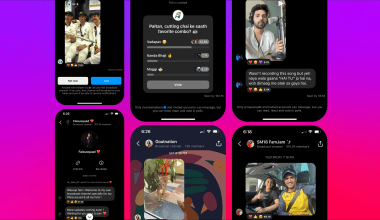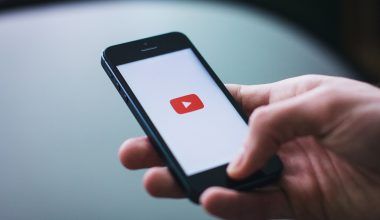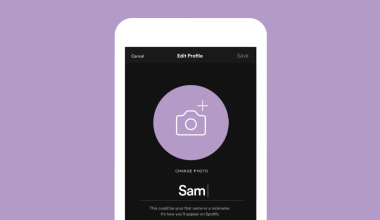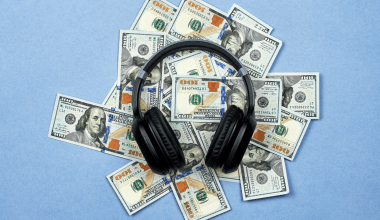If you’re making music, you might have heard about something called an ISRC code. Don’t worry if it sounds technical—it’s actually very simple. An ISRC code is like a special ID card for your songs or music videos. It helps everyone know which track belongs to you, even if someone else has a song with the same name.
In this blog, we’ll explain everything about ISRC codes in the simplest way possible. Whether you’re an independent artist, part of a band, or a label, this guide will show you why ISRC codes are your music’s best friend.
What Does ISRC Mean?
The full form of ISRC is International Standard Recording . It’s a fancy name for a simple tool. Think of it as a unique fingerprint for each of your songs or videos. Just like no two people have the same fingerprint, no two songs have the same .
Here’s how it looks:
Copy codeISRC XX-XXX-YY-12345
Breaking It Down:
- Country Code (XX): Shows where the code was issued. For example, “IN” for India.
- Registrant Code (XXX): This part identifies you or your label.
- Year (YY): The year when the code was issued.
- Designation Code (12345): A unique number for each track or video.
Why ISRC Codes Are Important for Artists
Now that you know what an ISRC code is, let’s see why it’s so important. If you’re serious about making music, you need an for every track. Here’s why:
1. Track Your Earnings
Whenever someone listens to your song, whether it’s on Spotify, YouTube, or the radio, the ISRC code ensures you get paid. Without it, your streams and plays might not be counted properly.
2. Protect Your Music
Your ISRC code proves that you own the song. This helps avoid any confusion if someone tries to steal your work or copy it.
3. Make Distribution Easy
When you upload your music to platforms like Apple Music, Spotify, or YouTube, they ask for an . It’s like a pass that ensures your song gets listed and streamed correctly.
How Do You Get an ISRC Code?
Getting an is super easy. Here are two simple ways:
1. Through a National Agency
Every country has an official agency that can give you ISRC codes. In India, for example, artists can get them from Phonographic Performance Limited (PPL).
2. Through Your Music Distributor
Platforms like Deliver My Tune provide ISRC codes for free when you distribute your music through them. It’s fast, easy, and saves you the hassle of applying separately.
Do You Need an ISRC Code for Every Song?
Yes, you do! Each song, remix, or live version needs its own . If you release an album with 10 songs, you’ll need 10 different ISRC codes. Even if you remix or perform the song live, it will need a new ISRC code.
Where Do You Use an ISRC Code?
You might be wondering, “Where do I actually use this code?” Here are the main places:
- Music Streaming Platforms: Spotify, Apple Music, and others use the to track plays.
- Music Videos: Uploading to YouTube? ISRC codes ensure your video is properly tracked.
- Radio and TV: Broadcasters use ISRC codes to report airplay and pay royalties.
What Happens Without an ISRC Code?
Without an ISRC code, your music might still get played, but you could lose out on royalties. It also becomes harder to prove ownership or distribute your music professionally. Imagine making a hit song but not getting paid because it didn’t have an . That’s a nightmare every artist should avoid!
How to Use ISRC Codes for Success
Let’s make sure you’re using ISRC codes the right way. Here’s a step-by-step guide:
Step 1: Assign a Code to Each Track
If you’re an independent artist, your distributor can assign codes to your songs. Platforms like Deliver My Tune handle this for you automatically.
Step 2: Embed the Code
Embedding means adding the to your song file. This ensures the code stays with your track, no matter where it’s played.
Step 3: Monitor Your Royalties
Use tools like SoundExchange or your distributor’s dashboard to check how much your music is earning.
Real-Life Examples of ISRC Codes in Action
Example 1: An Independent Artist
Imagine you’re an independent artist who just released a single. You distribute your music through Deliver My Tune, and they assign an ISRC code for your track. Every time someone streams your song on Spotify, the ISRC code ensures you get your earnings.
Example 2: A Music Label
A label releases an album with 12 songs. They assign ISRC codes to each track. This helps them track royalties and see which songs are performing best.
Common Questions About ISRC Codes
1. Do I Need to Pay for ISRC Codes?
No! Many distributors, like Deliver My Tune, include ISRC codes for free as part of their distribution packages.
2. Can I Reuse ?
No. Each code is unique and can only be used for one specific track or video.
3. Do I Need a New Code for a Remix?
Yes. Every new version of a song, such as remixes or live recordings, needs a new.
How Does Deliver My Tune Help With ISRC Codes?
Deliver My Tune is one of the best platforms for independent artists and labels. Here’s how they make ISRC codes simple:
- They provide free ISRC codes with their music distribution packages.
- Their dashboard helps you track your royalties and streams easily.
- They distribute your music to 100+ platforms, ensuring global reach.
A Simple Checklist for ISRC Codes
Let’s make sure you’re all set to use ISRC codes. Here’s a quick checklist:
- Get an ISRC code for every track.
- Embed the code in your song file.
- Use a reliable distributor like Deliver My Tune.
- Monitor your earnings using ISRC-linked tools.
Final Thoughts: Why Every Artist Needs an ISRC Code
An is more than just a number. It’s your ticket to professional music distribution, royalty tracking, and protecting your hard work. Whether you’re just starting out or you’re a seasoned artist, ISRC codes will help you grow your career.
So, the next time you release a song, make sure it has an ISRC code. It’s a small step that makes a big difference.
Related Articles:
For further reading, explore these related articles:
- How to Become a Songwriter: Your Easy Guide to Success!
- What is the AAC File Format? A Simple Guide for Everyone
For additional resources on music marketing and distribution, visit Deliver My Tune.






